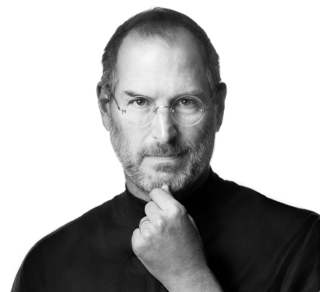Around 1986, my family got our first real computer, a Macintosh 512k (so titled because of the memory stored behind it’s glowing screen). I was six years old, and it changed my life. My mom had Lupus and couldn’t work in a normal office, so when my dad left that year she could only work from home. She had only occasionally used a computer up to that point when her best friend Melinda, who was also in a wheelchair, showed her how she was able to work from home using this amazing Macintosh operating system.
My mom was hooked. She was able to be one of the early pioneers in the world of desktop publishing when it still seemed like magic. During the hardest years of dealing with sickness, divorce, and single parenting, she joined a beautiful new community, the local Mac User Group. She taught me how to write and create on that Mac, and we moved on to bigger and better Macs like the Mac Classic and even an ill-fated Performa. When she was bedridden at home or in the hospital again later on in life, she slept with little white earbuds in her ears and a Powerbook by her side in case she woke up and needed to connect with a friend on Facebook or play a word game to distract her from pain. We both waited for Apple to release some kind of “magical tablet” that she could use for reading, writing, and watching movies in bed.
My dad was later to the Mac world. As a musician, he was early to use expensive standalone MIDI devices, and he saw the future coming. In 1994, he decided that he needed a real computer to help him compose music faster and run a business. His one stipulation that had scared him away from most PCs at the time: he didn’t want his computer to make him feel stupid, and he didn’t want to devote half his time to learning how to use it. I took him shopping at one of the only stores that sold Macs (luckily we were in a university town), and he got a Powerbook 500. Ten years later, he was still bragging that I was the best son ever; partially because I introduced him to the Mac. He also went through multiple machines as he taught music to thousands of children and released multiple albums, and we talked about how much he loved his refurbished Powerbook and new Mac Mini in our last conversation. He had finally gotten an iPod, and he asked me how to hook it up to his car.
The growth of Apple was a shared experience for all of us. My parents were inspired to write, draw, and create music on devices that didn’t quite seem like computers to them. I was inspired to write, draw, and create music by watching them. All of us got excited when Steve Jobs came back to Apple, and all of us prayed for him when he started getting sicker.
My father died at the end of 2008, and my mom passed in 2009. Now, with the passing of Steve Jobs, I feel like an era has ended. I’m saddened, because the world is a little bit less interesting than it was before. I’m thankful, though, because all three of these people left behind a legacy and the tools to continue what they started. Thank you, Mom. Thank you, Dad. Thank you, Steve.
